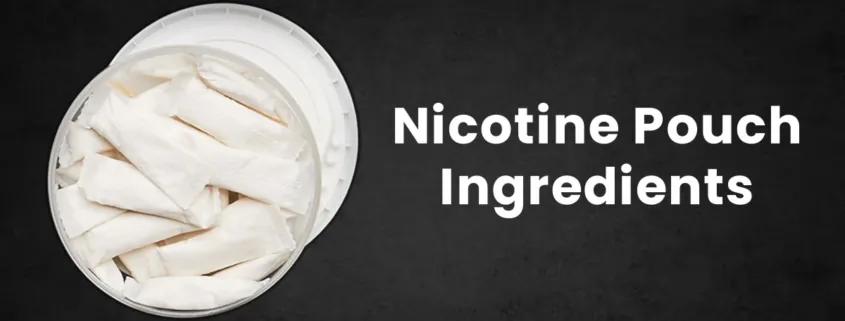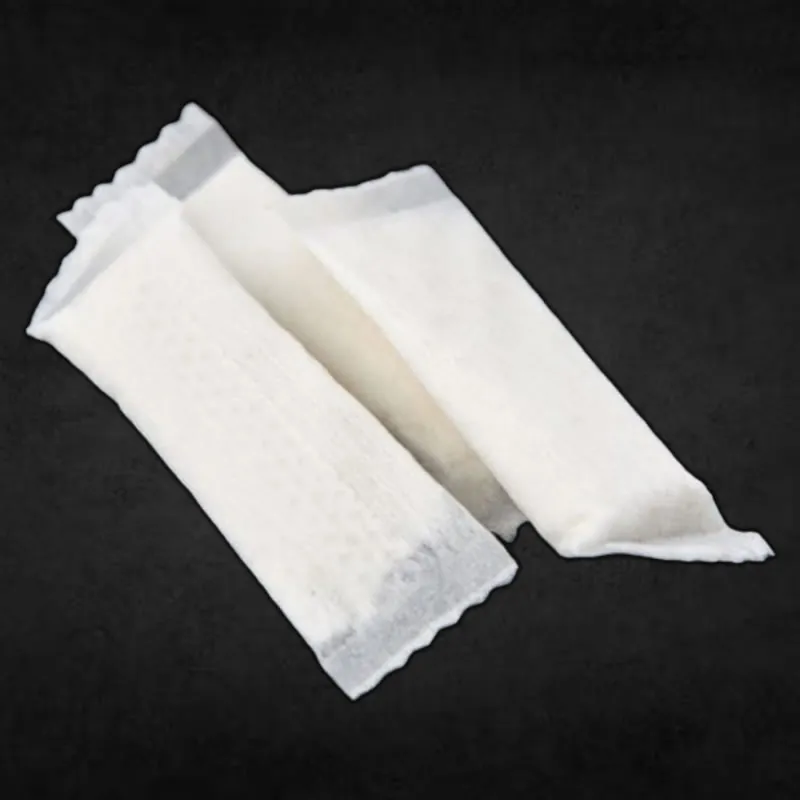Nicotine Pouch Ingredients Explained
Nicotine pouches have surged in popularity as a tobacco-free alternative for adult nicotine consumption. But what exactly makes up these discreet, spitless oral pouches? Let’s peel back the layers and explore the key ingredients.
Plant-Based Pouch Composition
The pouches themselves consist primarily of cellulose, a plant-derived fiber that makes up the walls enclosing the interior filling. Cellulose provides a smooth, comfortable user experience.
The filling is also mainly composed of cellulose, in the form of small granules that create volume and a pleasant mouthfeel. Unlike traditional tobacco products, no leaf, ground, or reconstituted tobacco material is present.
Synthetic Nicotine the Core Active Ingredient
At the heart of nicotine pouches is the namesake active drug – nicotine. But unlike tobacco products, the nicotine used is lab-synthesized, known as Zero Nicotine Tobacco (ZNT).
The nicotine is added in the form of nicotine salts, which studies suggest have faster absorption rates than freebase nicotine from tobacco. This rapid delivery provides quick satisfaction.
Multiple precise nicotine strengths are offered, usually ranging from 2mg to 12mg per pouch. This allows users to customize to their preferences.
The synthetic nicotine enters the bloodstream via absorption in the oral mucosa tissues when placed in the upper lip. Avoiding combustion, pouches deliver nicotine through this cleaner mechanism.
Read more: What is Nicotine Salts
pH Modifiers Optimize Absorption
Nicotine absorption rates are heavily dependent on pH levels. Therefore, ingredients like sodium bicarbonate are added to increase the pH to the optimal range.
Higher pH makes the nicotine solution more basic, which improves buccal absorption in the lip. However, too high of a pH can cause mouth irritation, so levels are carefully balanced.
Preservatives Maintain Stability
Nicotine pouch products require a shelf life of around 12-24 months. Preservatives like potassium sorbate are added to maintain stability and prevent microbial growth during storage and distribution.
Flavorings Tailored to Adult Palates
Artificial flavorings cater to adult sensibilities, with profiles like mint, fruit, and coffee. Popular options include Cool Mint, Blue Raspberry, and Cinnamon Roll.
Unlike tobacco products, the flavors are not masked by tobacco heavy notes. This allows crisp, pleasurable flavors designed for mature palates.
Moisturizing Agents Prevent Dryness
Ingredients like sodium alginate and vegetable glycerin help retain moisture and prevent the interior filling from drying out.
They also provide a smooth, lubricated mouthfeel for a comfortable user experience.
Fewer Risks Than Tobacco
A key advantage of synthetic nicotine pouches is the lack of tobacco, which contains carcinogenic nitrosamines and other toxicants.
Research suggests nicotine pouches pose fewer risks than tobacco, with toxin levels comparable to nicotine gums or lozenges. While not completely safe, they offer a potentially reduced harm option.
The carefully formulated ingredients in nicotine pouches aim to provide an optimized, satisfying experience for informed adult consumers seeking alternatives.
Additional Details on Key Ingredients
Sodium Alginate: Derived from brown seaweed, this compound acts as a stabilizer and binder to maintain moisture. It produces a smooth, lubricated mouthfeel. Often used in foods.
Sucralose: An artificial sweetener 600 times sweeter than sugar. Enhances flavor qualities. Heat-stable and suitable for baking.
Acesulfame Potassium: Also known as Ace-K, this additive provides a sweet taste, enhances flavors, and improves aroma. Often combined with sucralose.
Propylene Glycol: A familiar ingredient for vapers, PG is an odorless, sweet-tasting stabilizer. Helps distribute flavor evenly.
In summary, nicotine pouches consist of a precise blend of ingredients designed to deliver a satisfying experience free of tobacco impurities. While not without risks, they offer a potentially harm-reduced alternative.
- Malaysia to Impose “Pro-Health Tax” on Vape and Tobacco Products - August 2, 2025
- HHC Vapes: What Are They & Are They Safe? - July 31, 2025
- Cannabis and Vape Shop Workers Rank Happiest in Nation - July 31, 2025










